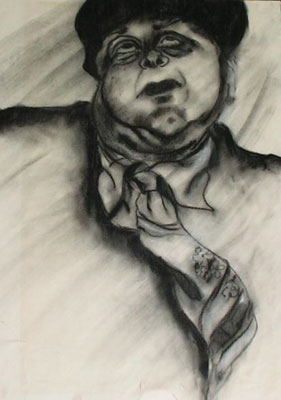All Nonfiction
- Bullying
- Books
- Academic
- Author Interviews
- Celebrity interviews
- College Articles
- College Essays
- Educator of the Year
- Heroes
- Interviews
- Memoir
- Personal Experience
- Sports
- Travel & Culture
All Opinions
- Bullying
- Current Events / Politics
- Discrimination
- Drugs / Alcohol / Smoking
- Entertainment / Celebrities
- Environment
- Love / Relationships
- Movies / Music / TV
- Pop Culture / Trends
- School / College
- Social Issues / Civics
- Spirituality / Religion
- Sports / Hobbies
All Hot Topics
- Bullying
- Community Service
- Environment
- Health
- Letters to the Editor
- Pride & Prejudice
- What Matters
- Back
Summer Guide
- Program Links
- Program Reviews
- Back
College Guide
- College Links
- College Reviews
- College Essays
- College Articles
- Back
Paradelle of an Enlightened Misanthrope
There once was a man named Mary
There once was a man named Mary
His hair was gathered from wilted leaves
His hair was gathered from wilted leaves
Hair once was from his leaves
Was there Mary named, gathered a wilted man
He smiled and laughed, shunned by all
He smiled and laughed, shunned by all
Collected coins and kept company with the moon
Collected coins and kept company with the moon
Shunned and collected, he kept by the moon
Laughed coins and smiled with all
Stories existed; to him, reality ceased to function
Stories existed; to him, reality ceased to function
To lose oneself in fantasy was the fabric of heaven
To lose oneself in fantasy was the fabric of heaven
Fantasy existed to function to lose in fabric
Him ceased of heaven reality, was stories oneself
Once, reality was to him shunned
And stories in wilted coins existed from heaven
All company ceased to Mary, he gathered fantasy
The moon was his fabric, and to function smiled
There, man kept his leaves collected
Oneself laughed, named a hair his lose.

Similar Articles
JOIN THE DISCUSSION
This article has 0 comments.

But it's also a tricky type. It's composed, basically, of four six-line stanzas. For the first three, two lines are each repeated, and then combined and rearranged to make the final third of the stanza.
But for the fourth, all six lines from the previous paragraphs are brought together and rearranged.
You can't add any words, and you have to use every word given. And that's what makes it tricky.